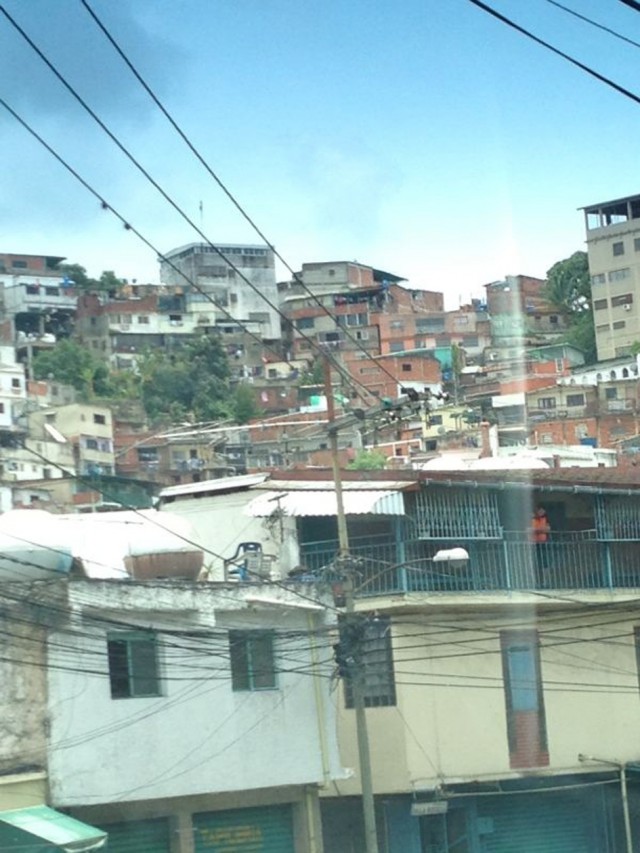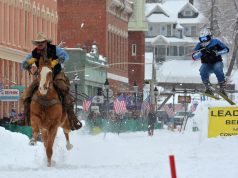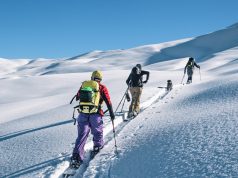
Three, two, one, bang. It is that fast. Traveling involuntarily through the most contrasting realities. Traveling through the opposite side of my life in my own country. Just when distraction hit me, just in one fearless blink and smile in the middle of the night, I was robbed. Not my wallet, not my belongings, I was actually taken against my will into an experience, a journey few people ever undergo — lucky me. It was a 10-hour road trip, not with my pals, but with the guys that made a fortune by selling me back to my family. “We’re good guys, you know, don’t be scared, we will not hurt you as long as you’re good. Now call someone who will solve this for you.”
The first hour and the last minute are the worst part. There is the expectation of the worst. It is in that precise time that my mind betrays my soul and attempts to make bargains with God and with the men that have me miserably bowing against the head of a handgun. This expectation is usually the most horrible thing you can imagine. I keep my eyes open, try to see where I’m being taken, but it’s dark and all I can see is a few other cars speeding on the highway. In the car, there’s a North Face backpack, a couple of notebooks and an empty Nalgene water bottle. I realize that the fully equipped Toyota SUV I’m riding in doesn’t belong to these people. It was probably stolen from a wealthy college kid. I try to sneak out my phone to text someone for help. However, my body is having a seizure and my hands are shaking uncontrollably. I try to focus and think harder of how to make it through. Suddenly, I resort to becoming a CIA agent, making plans for my escape and my defense in case of assault.
As I plot my potential CIA career, I notice that I’m traveling through a part of my country I had heard of but never even thought of going near. I don’t even know the name, but I know they’re taking me behind the mountains, where the sun doesn’t shine because it’s scared to witness such misery and violence. Holy crap, it’s scary. The road is made mostly of dirt and broken concrete as we get off the highway. We are going way uphill into what feels like a mountain peak. The street is covered with an enormous amount of trash, and the few people who are outside look like they could seriously hurt me. I can see a few women who are barely wearing any clothes. They can probably kick anyone’s butt with one of those extremely high pointy heels they are wearing. I spy a gun hiding on the back of one of the men who are walking around the street. He has a bottle of rum in one hand and a barefoot toddler in the other.
My heart is in my mouth, pounding harder and harder as we approach the center of this “barrio.” I had seen the shantytowns from afar before, but now I am in the middle of one, inserted into a foreign and dangerous reality. The shantytown is a slum settlement of corrugated metal, sheets of plastic, cardboard boxes and, if the inhabitant is lucky, a few bricks, built on the periphery of Caracas.
Las Minas | Photo by Enrique Salas
Venezuela was once a country where foreigners would find refuge. Actually, a large portion of the senior population in Venezuela is European immigrants. Venezuela is not only rich in natural resources like petroleum, hydropower, natural gas and many others, but also has an enviable mild summer climate all year long and is famous for its striking contrast of majestic mountains and paradise-like beaches. However, you start to see a new version of country, your home, while gazing out your kidnappers’ two-door SUV with four angry armed men, realizing that there’s no possible escape. It smells like dirt. With my eyes shut, I could believe I was in a dusty, humid place with men who are wearing way too much cologne, and definitely not the good kind. I wished I had a cold so I could at least avoid the intoxicating stench. Mentally I’m traveling to the battlefield of a horrific war. It’s funny when you come to realize all those action movies and TV shows are such bullshit.
“Where the hell are we?” I continue to ask myself, paying close attention to the dirt road we are conquering, aware of the darkness and danger that surrounds us.
When Hugo Chavez became the president of Venezuela, it fed hatred among political parties and political instability. In addition to the violence, his illegitimate presidency fueled the resentment between the rich and the poor. Thriving on his personal wealth, Chavez promoted hatred toward the wealthy while the poor became poorer and poorer. The minimum wage in Venezuela, effective since 2012, is $5,727 annually, in a city where a twopound loaf of bread goes for $9.40.
According to economists, Caracas is the most expensive city in the Americas and the ninth-most expensive city in the world. The disparity between rich and poor keeps rising, and the extremely rich Venezuelans value their capital in the billions of dollars.
“Sing a song! Louder! I said louder! Sing now! Laugh out loud! Shut the fuck up! Laugh if you don’t want a bullet to your head. Louder! One more tear and you’ll make your miserable family childless, do you understand?” Those were the words coming from one of those poor men, robbed of all opportunity. A man with a very sad history and life. “Don’t worry girl, we respect women. We have wives and kids, you know. We don’t want to hurt you, we just need the money. Do you want some Gatorade? Some water? Weed or coke? Monster! Prepare a line for the brat.”
Kidnappings are a game and a job to the “secuestradores.” A lot of people who live in poverty in Venezuela see an opportunity in the corruption of a severely insecured country to make some money and get by. It’s a growing business these days, and is commonly known as “express kidnap.”
“Mondays, Wednesdays and Saturdays as soon as it gets dark,” are the best kidnapping days and times, one of the guys in the SUV informs me.
“Alert your friends so they don’t have to go through this too,” he tells me in the friendliest manner. Did we become pals somehow?
It is extremely confusing. At one point I consider the possibility that these guys are genuinely nice. In a country like Venezuela, kidnapping is probably a fair and forgivable excuse to survive. But then I also think it is wrong and these guys are not really that nice. I mean, I am being psychologically tortured here.
“You know what? Just kill me already, put a bullet in my head! Don’t do this to me. I would much rather die. Come on, just pull the trigger, I can’t stand this anymore, please just do it!”
“I’m sorry, please don’t kill me, I didn’t mean it, please. Sorry.”
I do not suffer from bipolar disorder, but I swear I was acting like it at the time.
On average, there are more than 50 reported kidnappings daily in Venezuela. For every kidnap reported, there are 10 unreported ones. Every person in the middle to upper social class in Venezuela knows someone who has been kidnapped, robbed or killed. Most of the affected families don’t report these crimes because it could mean further danger since police officers are involved in more than 20 percent of all crimes in Venezuela. Venezuelans don’t trust their institutions, and there is a 300 percent deficit in investigative agents, according to the United Nations. In fact, Caracas was recently ranked the third-most dangerous city in the world, with more documented deaths in 2012 than Baghdad. In Venezuela, social and political insecurity is booming and spreading briskly, stimulated by frail and corrupt institutions and the growing influence of organized crime.
I learned so much about myself and my country during those long hours in the SUV. It’s the helplessness, the weakness and the impotence that reign in my home. No matter what I say or do, the ones with guns will win this battle. If I want to live, or even worse, if I want to remain untouched and unhurt, I must follow orders like a dog. This feeling is so shameful that my self-esteem and my ego suffer and shrink, even when part of my consciousness still wants to play CIA agent to kick and fight back. Finally, humiliation and misery take over and I’m livid with all the crap these guys are giving me.
“So, are you a virgin?” Silence. “Hey! I’m talking to you — when I ask you a question you answer! Understand?” he blurts.
“Yes, I am a virgin, not that it’s any of your concern,” I respond calmly, pretending to be fearless. They said “barrio” girls are giving birth when they are 13. For a moment, they are absolutely amazed by this glimpse into a different Venezuela.
“You fucking rich girls have it all, don’t you? You selfish little brat, born and raised in a golden bubble, while we impoverished people pray it’s not our house that crumbles down when it rains. Do you get it? Do you get how unfair it is? You shoving your fancy car and your fancy life in our faces … It’s not nice.”
Photo by Enrique Salas
They go on with their monologue and I finally get it. This band of kidnappers is, in fact, right about my home. They are right to be angry. I can see Venezuela through their eyes, a country of social disparities. The beautiful mansions protected by armed guards cast a shadow that reaches the tired crowds standing in the pouring rain on the corner. They are waiting for a bus, resigned; they will probably not even fit inside.
As I contemplate the impact of my involuntary road trip, I realize that life in Venezuela is not fair. I am actually not in the middle of a battlefield. I am on a journey that rides on the margins of the historically poor and wealthy. Until now I had never really understood. But now that I’m traveling through the darkest reality, living the everyday life of my “secuestradores,” feeling their pain and their resentment, sharing their shoes, I get it. We bonded. The road brought us together: the highway that we transited back and forth 14 times (yes, I counted); the “barrio” we drove through; the trash we stepped on. Now I know.
It is not until that feeling of knowing something’s wrong — the economy or the corruption, for example — hits home that you actually understand it, since you haven’t truly been affected by that harsh, well-known truth. I used to be that person until horror grabbed me from my fairy tale life and dragged me into an unwanted journey that changed my perspective forever. Venezuela is in danger and people need to know.
“Hey, close your eyes and look down, I don’t want you going to the police tomorrow describing us as some handsome, brown dudes …” one of them would joke. He caught my eye with his tanned skin, eyes as green as an olive, and his perfectly aligned teeth, except for one that was hiding behind its neighbor. He was muscular and young, probably in his 20s, and he did not look like he came from the barrio. These guys were not handsome, by the way.
I finally get the good news. “Your daddy loves you, kid, we got the money.”
They take my belongings, including my shoes and some of my clothing, in less than 30 seconds. They slow down and one of the “secuestradores” farewells with, “Don’t look back or I’ll shoot you!”
He tosses me off the car in the middle of the highway. Just like that, like a sack of potatoes. Believe me, this part of the journey, this last minute, is as scary as being taken. Now, once again, I lay vulnerable in the middle of the night, dreading the potential of another assault until I save myself.
Gathering myself on the highway, I try to make my way back home to my Caracas. My newly gained perspective is disorienting, and for a minute I don’t know where I am. Once I regain my focus, I thank God that I was released here and not on one of those dirt roads in the middle of danger. I get up. Bruised, cut, and half-naked, I indulge my new broken self into a run of shame, urged by the adrenaline rush infusing my body with life. I finally spot the bright lights of a luxury hotel in the dark. The concierge saw hell when he laid eyes on me. I came from Caracas in the dark.
After being kicked out, yelled at and shamed, the manager finally allowed me to make a single phone call that would bring me back to what used to be my fairy tale life.
“Dad … It’s me, I’m OK … I’m sorry, I should have been more careful,” I muttered on the phone with tears in my eyes, as my hero ignored my words and pleaded to know where I stood so he could fly to my rescue.
Carolina Salas graduated from the University of Colorado on May 9. She came to the U.S. after her kidnapping when she was 20 years old and majored in advertising and psychology. She says, “I love to visit my country, but don’t want to go back to live there.”
Respond: [email protected]














